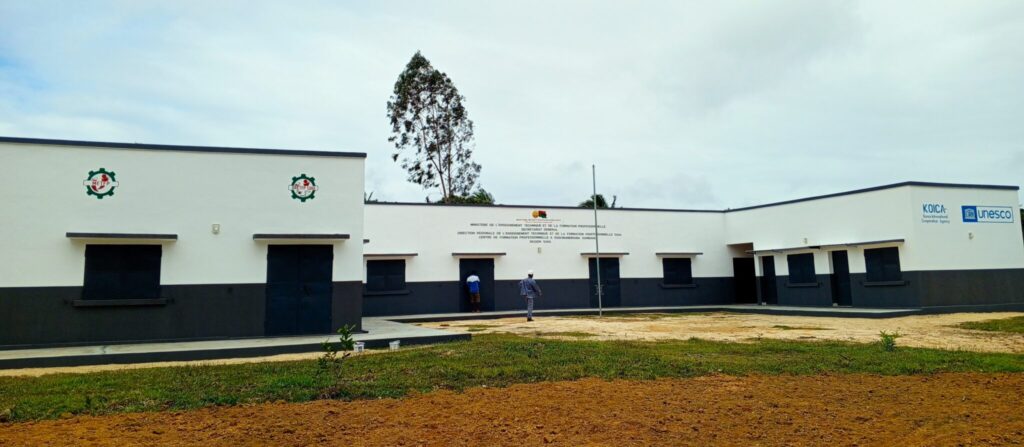
The population around Marojejy National Park is largely made up of young people, most of whom grow vanilla and rice. For the past three years, the population has been faced with fluctuating vanilla prices and is seeking to diversify their source of income in order to survive this situation. As a result, the park is under pressure from the activities that serve as alternatives for the local communities to survive. What’s more, the community’s young people are dropping out of school without any diploma or qualification because they lack the means to continue their studies and, above all, to help their parents with their subsistence activities. To alleviate this precarious situation and come to the aid of this community, a Vocational Training Center (CFP) has been set up to support the development of young people’s skills and give them hope for a better future thanks to training that will enable them to exercise decent trades later on.
The CFP is made up of 2 furnished and equipped buildings comprising 3 training rooms, 3 offices for administrative staff and 2 rooms for practical work. This construction, including the furnishings and equipment of the various rooms, is a contribution from the UNESCO BIOCOM project, financed by the Korean International Cooperation Agency (KOICA) and in collaboration with the Ministry of Technical Education and Vocational Training, which provided the land for the center and recruited the center’s administrative and technical staff.
The center was inaugurated by the Minister of Technical Education and Vocational Training, VAVITSARA Rahantanirina Gabriella, the Madagascan deputies elected in Sambava, the Governor of the SAVA region, local authorities and representatives of development partners working in the region’s environment.
Thanks to this initiative, 140 young people from the park’s local community will benefit from vocational training in metalwork and masonry, two promising sectors for the region concerned. In the long term, the establishment of this center will help to reduce deforestation through the availability of local masons trained in the hard construction of houses, whose practices will focus on the use of hardwoods in the protected area, and reduce the risk of damage to dwellings during the cyclones that hit the region every year, increase agricultural production, such as rice-growing, through the improvement of locally manufactured agricultural equipment, the development of innovations such as the manufacture of improved fireplaces, which will help to reduce deforestation, and the increase in the number of available skilled workers in the Marojejy National Park community.
« Vocational training will contribute to the development of the SAVA region through job creation and the availability of local skills. The preservation of our natural wealth, such as the Marojejy National Park, is one of our priorities in the Region, whose slogan is: ‘Developed SAVA Region ». Teddy Gervais Seramila, Governor of the SAVA Region
The BIOCOM project
The BIOCOM project (Biodiversity Conservation and Sustainable Management of Natural Resources for Integrated Community Development in Madagascar’s National Parks), funded by the Korea International Cooperation Agency (KOICA), aims to conserve the outstanding universal value of Marojejy National Park and Andohahela National Park in the Atsinanana rainforests, which have been on the World Heritage List in Danger since 2010 due to various anthropogenic pressures. The project also aims to safeguard the protected harmonious landscape of the Montagne des Français.

